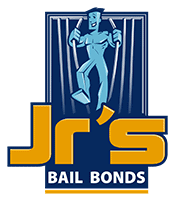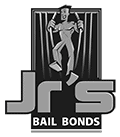JR’s Bail Bonds – Frequently Asked Questions (FAQ):
If you don’t see your question below on the Bail FAQ section, call our bail bondsman as soon as possible at 1-888-577-BAIL and we’ll get you the answers!
Do I need Collateral to get a bail bond?
In most cases no collateral is needed to get a bail bond. Most Bail Bonds can be posted with only a signature. If bail is required collateral can be in the form of real estate or cash. A bail bond company must return your collateral at the resolution of the case.
Is there a confidentiality agreement with the bail bondsman?
A bail bond service provides a confidential source for your bail. A bail bondsman can prevent you form going to friends, family, banks, and other financial sources to obtain the bail amount needed to bail the individual out of jail. Using a bail bondsman allows you to complete the paperwork in one sitting. This prevents headaches and allows you to focus on your defense. You can easily determine and sign over collateral items at one time. It prevents the need to transfer funds at a numerous financial institutions. It prevents the need to transfer funds at a numerous financial institutions. Bond agents work for you to gain release as soon as possible. Although confidentiality is not guaranteed by the code of ethics most Bond agents use discretion.
How much money do I need to put down for Bail?
We understand that buying a bail bond is often an unexpected expense. Give us a call to set up a payment plan that fits your financial situation. In most states, including California, a bail bond is 10% of the bail amount. However, each state sets their own non-negotiable rates. There are no hidden fees or taxes for a bail bond, so if bail is set at $10,000, then the bail bonds fee charged is $1000.
I think I have a Warrant for my Arrest, What do I do?
Call us immediately, we will check to see if you have an active warrant. Our Bail Agents will make arrangements to clear your warrant fast and legally.
What is the defintion of a cash bond?
Cash bonds are posted by friend, family, or yourself when you’re arrested for a crime. These bonds require the full bail amount and are not financed through a bail bondsman. You thereby guarantee your own presence in court. The court holds and restricts the total bail amount until the case is concluded. Posting a cash bond can consequently tie up necessary living funds and savings. Once the case is finalized, the bail is returned to you. Failure to appear for trial forfeits the bail to the court. The court then issues a bench warrant for your arrest. It’s intended that you will have more to lose and a greater incentive to appear at court proceedings by either restricting the full bail amount of issuing an arrest warrant. In cases involving drug trafficking, all bail money must have proven origination from non-drug sources before it can be used as bail.
I missed my court date, do I have to go back to jail?
Call us right away to discuss your options. Often times we can get you a new court date right away by filing a court motion.
What does skipping bail mean?
Skipping bail is the term used to describe a charged individual who fails to make the mandated court appearances. When an accused person skips bail; the court issues a bench warrant for their arrest and court appearance. Bail is normally forfeited at a specified time period thereafter. Once the individual has skipped, a bail bondsman may try to locate them through whatever means possible. If the accused is returned to court prior to the forfeiture date, the bail amount has not been paid and the collateral may be returned.
I need a lawyer for my criminal case, how do I make sure I find the right one?
Though bail bondsman legally prohibited to recommend or distribute legal council here are a few tips that can help you pick the right lawyer for your case.
What is considered by the Court in fixing the amount of the bail?
The amount of the bail is first and foremost within the scope and discretion of the judge overseeing the case, with only generally two limitations. First, The purpose of bail is not to penalize or punish the defendant, but to secure the appearance of the accused individual. Second, excessive bail, not warranted by the circumstances or the evidence for the case is not only improper but a violation of constitutional rights. In fixing the amount of the bail, the court takes into consideration a number of stipulations including the defendant’s previous criminal record, and the probability of the defendant appearing at the trial or hearing. The court must also consider evidence offered by the detained person regarding ties to the community and ability to post bond.
Where do I begin in the bail bonds process?
The first step is understanding exactly what your issue is. Decide, do I need council, should I use a public defender, or should I hire an attorney.
What type of lawyer should I look to hire?
It is never a bad idea to think about hiring a lawyer who has extensive experience cases like yours. However determining if a lawyer is really an expert in a specific area may be harder than it sounds. A good way to gauge credibility could be to determine if they have ever been published, or see if they are involved in the local bar association.
Are large Law Firms Better? or should I stick with my Local Lawyer?
Though larger firms tend to be more pricey they also tend to have more resources to pull from as well as a larger pool of experts that are savvy to your type of case. However, on the other side of this theory is the concept that large firms with even larger case loads can be spread thin and may not be able to give your specific court case the time that you think it deserves. Set up multiple meetings with different firms, make them compete for your business, and choose the attorney that you feel has the knowledge needed and most importantly the drive to use that knowledge effectively in your defense.

